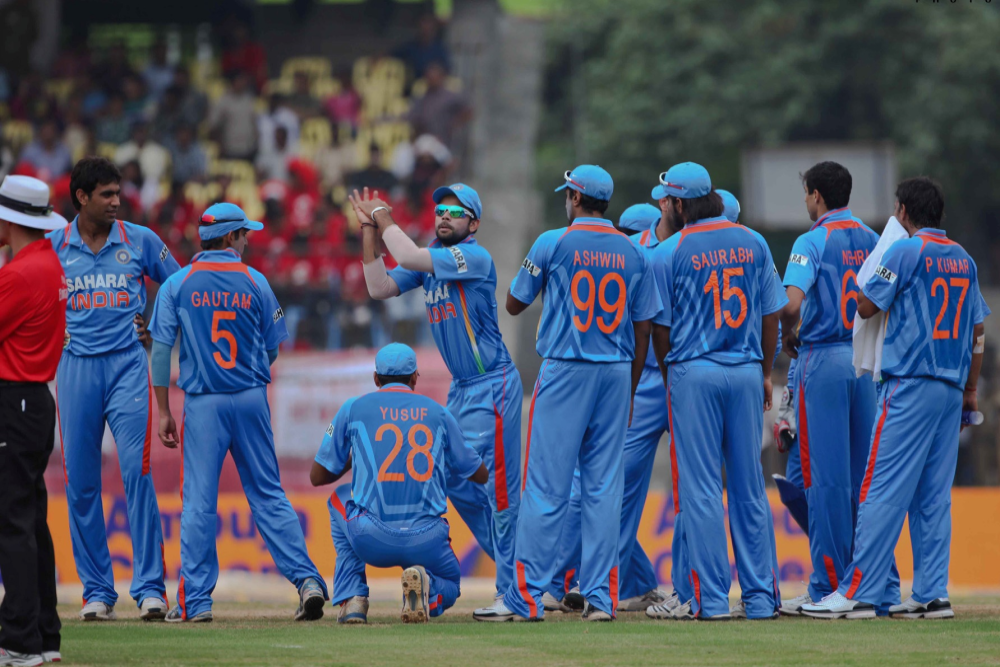
Mental Aspects of Cricket for Young Players
Cricket is not just a physical game; it also requires strong mental capabilities to succeed on the field. For young players, understanding and developing their mental aspects is crucial for their overall growth and performance.
This article will delve into mental aspects of cricket and explore various mental skills that young players can cultivate to enhance their game. Mental strength plays a vital role in cricket as it directly impacts a player’s ability to concentrate, handle pressure, visualize success, and bounce back from setbacks.
A study conducted by the British Journal of Sports Medicine emphasized the significance of mental toughness in cricket, highlighting its positive correlation with performance outcomes.
Maintaining concentration and focus is imperative in cricket, as the game requires constant attentiveness and quick decision-making. Young players need to develop strategies to stay focused and avoid distractions on the field.
Cricket often puts players in pressure situations, such as high-stakes matches or critical moments in a game. It is crucial for young players to learn how to handle pressure and perform at their best under challenging circumstances.
Visualizing success and practicing positive thinking techniques can significantly impact a player’s performance. By mentally rehearsing their shots, strategies, and desired outcomes, young cricket players can enhance their confidence and execution on the field.
Cricket, like any sport, has its ups and downs. Developing mental resilience and learning to bounce back from setbacks is essential for young players to maintain their motivation and improve their performance.
Setting specific goals and building self-confidence are crucial aspects of mental preparation in cricket. Young players should learn how to set realistic goals and work towards achieving them, which in turn boosts their confidence and overall performance.
Cricket can evoke various emotions, including frustration, anger, and excitement. Managing emotions and staying calm and composed on the field is important to make rational decisions and maintain focus.
Cricket is a team sport that requires effective communication and collaboration with teammates. Developing good teamwork skills and communication abilities can lead to improved performance and a cohesive team dynamic.
A winning mindset involves adopting positive attitudes, believing in one’s abilities, and approaching the game with determination and resilience. Young players should cultivate a winning mindset to excel in cricket.
Throughout this article, we will delve deeper into each of these mental aspects of cricket, providing strategies and techniques to help young players improve their mental toughness and enhance their overall performance on the field.
Building Mental Resilience: The Sixes Social Cricket Advantage for Young Players

In the dynamic world of cricket, where the mental game is as crucial as physical skills, fostering mental resilience in young players is paramount. Sixes Social Cricket emerges as a transformative platform uniquely positioned to contribute significantly to the mental aspects of cricket for budding talents.
Cricket is a sport that demands focus, concentration, and the ability to bounce back from setbacks – all essential components of mental fortitude. For young players navigating the complexities of the game, developing a strong mental game is a journey critical to their overall growth as cricketers.
Enter Sixes Social Cricket, a venue that transcends conventional cricketing experiences. Beyond the physical aspects of the game, Sixes Social Cricket integrates cutting-edge technology, creating an immersive and challenging environment.
This goes beyond the traditional cricket nets, offering young players a unique opportunity to test and enhance their mental skills.
Benefits of Sixes Social Cricket on Mental Aspects
- Pressure Situations: The virtual bowlers at Sixes Social Cricket simulate real match scenarios. This exposes young players to pressure situations, teaching them to stay calm, make strategic decisions, and execute skills effectively under challenging circumstances.
- Decision-Making Skills: Cricket is a game of split-second decisions. The virtual environment at Sixes Social Cricket sharpens a player’s decision-making skills, fostering quick thinking and adaptability – qualities essential for success on the field.
- Team Bonding and Communication: Sixes Social Cricket, with its social setup, promotes teamwork and effective communication. Young players learn the importance of collaboration, developing a collective mindset that is invaluable in the cricketing arena.
- Stress Management: Coping with stress is a fundamental skill in cricket. Sixes Social Cricket, by replicating the intensity of a real match, provides a controlled space for young players to learn and manage stress effectively, preparing them for high-pressure situations in their cricketing journey.
In this section, we’ve explored the instrumental role that Sixes Social Cricket plays in cultivating the mental resilience of young cricket players.
By seamlessly blending technology, social dynamics, and the fundamentals of cricket, Sixes Social Cricket becomes a catalyst for shaping the next generation of mentally resilient and focused cricketing talents.
As young players engage in this innovative cricketing experience, they not only hone their skills but also lay the foundation for a robust mental game that will serve them well throughout their cricketing careers.
The Importance of Mental Strength in Cricket
The importance of mental strength in cricket cannot be overstated. This sport not only requires physical prowess but also a focused and resilient mindset. Let’s explore the key reasons why mental fortitude plays a vital role in cricket:
- Concentration: Cricket demands unwavering concentration for long periods of time. Batsmen need to stay focused to make split-second decisions, while bowlers must maintain attentiveness to deliver the perfect ball. Mental strength helps players stay present and ignore distractions.
- Resilience: Cricket has its fair share of challenges. Players must have mental resilience to bounce back from setbacks like early dismissals or conceding runs. Mental strength allows players to learn from mistakes, adapt their strategies, and perform better in future matches.
- Pressure management: Cricket often puts players in high-pressure situations, such as close run chases or crucial overs. Mental strength assists players in handling the pressure and making sound decisions. It empowers them to stay composed, focused, and perform at their best when it matters most.
- Decision-making: Cricket requires quick decision-making based on ever-changing game situations. Mental strength helps players think clearly, analyze the situation, and choose the best course of action. It cultivates a strategic mindset and enhances their ability to make effective decisions.
- Team cohesion: Mental strength is crucial not only for individual players but also for team dynamics. It fosters a positive team environment, builds collective resilience, and enhances communication and support among team members.
Pro-tip: Developing mental fortitude in cricket requires practice and self-discipline. Incorporate mindfulness exercises, visualization techniques, and positive self-talk into your training routine to develop a strong and focused mind that complements your physical skills.
Concentration and Focus
To excel in cricket, young players must develop strong concentration and focus skills. Here are some key factors to consider:
1. Eliminate distractions: Players should remove potential distractions such as mobile phones or noisy environments. This improves concentration during training sessions and matches.
2. Mental preparation: Before stepping onto the field, players should engage in mental exercises like visualization and positive self-talk. These practices cultivate a focused mindset and boost confidence.
3. Breathing techniques: Deep breathing exercises help players relax, reduce anxiety, and improve focus. Taking slow, deep breaths before each ball enhances concentration levels and aids in making better decisions on the field.
4. Goal-setting: Setting clear and achievable goals for each training session and match helps maintain focus throughout. Goals should be specific, measurable, and realistic to enhance concentration and motivation.
5. Maintain a present moment focus: Cricket requires players to be fully present in the moment. Young players should focus on the current ball, disregarding past mistakes or future outcomes.
6. Train the mind: Regular mindfulness exercises, such as meditation or yoga, greatly improve concentration and focus. These practices train the mind to stay present and avoid distractions.
7. Stay physically fit: Physical fitness directly impacts mental performance. Maintaining a healthy lifestyle through regular exercise and a nutritious diet enhances concentration and focus for optimal performance of young cricketers.
By implementing these strategies, young cricket players can significantly improve their concentration and focus, thereby enhancing their overall performance on the field.
Dealing with Pressure
Pressure is a common occurrence in cricket, especially for young players. Managing pressure is crucial in order to perform at your highest level. Here are some techniques to help you effectively deal with pressure:
1. Stay focused: Concentrate on the present moment and the task at hand. Avoid dwelling on past mistakes or worrying about future outcomes.
2. Use positive self-talk: Boost your confidence and belief in your abilities by using positive statements and self-encouragement. Remind yourself of your strengths and past achievements.
3. Practice deep breathing exercises: Calm your nerves and reduce anxiety by taking slow, deep breaths. This will help you stay relaxed and focused during high-pressure situations.
4. Visualize success: Imagine yourself successfully executing skills and achieving your goals. Visualizing positive outcomes can enhance your confidence and alleviate pressure.
5. Break it down: Divide challenging situations into smaller, manageable tasks. Focus on one step at a time instead of feeling overwhelmed by the overall situation.
6. Seek support: Discuss your concerns with your coach, teammates, or mentors. They can offer guidance, advice, and encouragement to help you handle pressure situations.
Remember, pressure is a natural part of cricket, and every player experiences it. By developing these coping strategies and maintaining a positive mindset, you can effectively handle the pressures of cricket and perform at your best.
Visualization and Positive Thinking
Visualization and Positive Thinking are essential skills for young cricket players to enhance their mental abilities and elevate their performance.
In the game of cricket, visualization plays a pivotal role in enabling players to concentrate, make informed decisions, and boost their self-assurance when faced with pressure situations.
Cultivating a positive mindset through positive thinking fosters a mentality that leads to triumph, reinforces self-confidence, and equips players to confront challenges head-on.
To foster the development of these invaluable skills, aspiring cricketers should:
- Fashion a mental image of triumph and envision themselves excelling in various game scenarios.
- Embrace positive affirmations and regularly repeat empowering statements to uphold a constructive mindset.
- Set attainable goals and break them down into smaller milestones to fortify belief and motivation.
By incorporating the practice of visualization and positive thinking into their training regimen, young cricket players can enhance their mental resilience, elevate their confidence levels, and amplify their on-field performance.
Consistent practice of these skills will nurture a victorious mindset that significantly contributes to success in the sport of cricket.
Mental Resilience and Handling Setbacks
In cricket, mental resilience and handling setbacks are of utmost importance for young players. They must nurture a determined mindset to effectively manage both the triumphs and disappointments of the game. Here are several key points to keep in mind:
1. Maintain optimism: Maintaining a positive mindset is crucial when facing setbacks. Encourage young players to focus on learning from their experiences and enhancing their skills.
2. Set achievable goals: Setting realistic objectives helps young players stay motivated and focused. Emphasize the process of improvement rather than solely the outcomes.
3. Develop effective coping strategies: Teach young players effective methods for coping with setbacks. This can involve techniques such as positive self-talk, visualization, deep breathing, and seeking support from teammates and coaches.
4. Learn from setbacks: Encourage reflection on setbacks and identify areas for growth. Understanding what went wrong and how to improve aids in the development of resilience and a successful comeback.
5. Emphasize the importance of teamwork: Remind young players that cricket is a team sport. Encourage them to support and rely on their teammates during difficult times. Team unity provides motivation and support.
6. Provide constructive feedback: As coaches and mentors, it is important to offer constructive feedback to help young players navigate setbacks. Highlight their strengths and suggest areas for improvement, creating a supportive and growth-oriented environment.
By fostering mental resilience and teaching effective strategies for handling setbacks, young cricket players can cultivate a strong mindset that benefits them both on and off the field.
Remember, building mental resilience takes time and effort. Encourage consistent practice of these strategies and remind young players that setbacks are a normal part of the game. With the right mindset and support, they can overcome challenges and grow as cricketers and individuals.
Setting Goals and Building Confidence
Setting goals and building confidence are essential for young cricket players to enhance their performance and mental resilience. Here are some fundamental steps to consider:
1. Reflect on current performance: Evaluate strengths and weaknesses in cricket skills and mental approach. Identify areas for improvement.
2. Establish specific, attainable goals: Break down larger cricket goals into smaller, manageable targets. This aids in tracking progress and maintaining motivation.
3. Envision success: Utilize imagery techniques to mentally rehearse successful performances. This increases confidence and fosters a positive mindset.
4. Create an action plan: Outline specific steps and strategies to achieve goals. This provides structure and direction to training and practice sessions.
5. Foster self-belief: Concentrate on strengths and past accomplishments. Recognize achievements and remind oneself of capabilities.
6. Seek support: Communicate with coaches, teammates, and mentors. They can offer guidance, advice, and encouragement during challenging times.
7. Maintain a growth mindset: Embrace mistakes and failures as opportunities for learning and growth. Adopt a resilient attitude and persevere in the face of setbacks.
8. Celebrate accomplishments: Acknowledge and reward progress along the way. This enhances motivation and reinforces positive habits and behaviors.
Remember, setting goals and building confidence are continuous processes. Regularly assess and adjust goals as you progress. With dedication and a positive mindset, desired outcomes in cricket can be achieved.
Managing Emotions on the Field

When it comes to managing emotions on the field, young cricket players can benefit from developing strategies to remain focused and composed. Here are some tips to assist them in navigating their emotions during a game:
1. Recognise and acknowledge emotions: Young players should comprehend their emotions and be conscious of how they can impact their performance. By accepting their emotions, players can regulate and control them.
2. Breathing exercises: Deep breathing techniques can help players calm their nerves and regain focus. Encourage players to take deep breaths in stressful situations for relaxation and clear thinking.
3. Positive self-talk: Encourage players to utilise positive self-talk to enhance confidence and maintain a positive mindset. Remind them to replace negative thoughts with affirmations and constructive thoughts.
4. Visualise success: Visualising successful plays and positive outcomes can assist players in staying motivated and focused. Encourage them to imagine themselves executing skills effectively and achieving goals.
5. Focus on the process: Remind young players to concentrate on the present moment and the task at hand. Encourage them to break down the game into small, manageable steps and focus on executing each step to the best of their abilities.
By implementing these strategies, young cricket players can effectively manage their emotions on the field and perform at their best. Remember, managing emotions is a skill that can be cultivated with practice and experience.
Teamwork and Communication
Teamwork and communication are crucial elements in cricket, especially for young players. Effective communication plays a vital role, as it ensures that everyone is on the same page and can strategize effectively. Clear and concise language should be used to facilitate communication among players.
This can be seen when players call for catches or communicate between the wickets.
Understanding roles is also essential for every player in the team. Each player must know their position on the pitch, their responsibilities during batting or bowling, and be aware of the team’s game plan. This understanding allows them to contribute to the overall success of the team.
Support and encouragement are important aspects of good teamwork. Players should provide words of encouragement, celebrate achievements, and offer constructive feedback when necessary. This creates a positive and supportive environment within the team.
In cricket, decisions should be made collectively as it is a team sport. Captains and senior players should involve others in the decision-making process, considering their input and ideas. It is crucial to have collaborative decision-making to ensure the team’s success.
Adaptability is a key skill in cricket, especially in fast-paced situations. Players should remain flexible and open to adjusting their strategies or roles in response to the changing dynamics of the game. This adaptability helps the team to overcome challenges and maximize their performance.
Listening skills are necessary for effective communication. Players should actively listen to instructions, suggestions, and feedback from coaches and teammates. This ensures that they understand and can execute instructions correctly.
Respect and camaraderie are vital for a positive team dynamic. Players should treat each other with respect, regardless of differences in skill level or experience. They should work together towards common goals, fostering a supportive and inclusive environment. Teamwork and communication are essential pillars in cricket.
Developing a Winning Mindset
Developing a winning mindset is crucial for young cricket players. Here are some key factors to consider:
1. Mental preparation: Prioritize mental preparation before every match or training session. Visualize success and establish specific goals. This will help maintain focus and motivation.
2. Positive self-talk: Utilize positive affirmations and self-talk to increase confidence. Replace negative thoughts with positive ones to enhance performance.
3. Resilience: Cultivate resilience to bounce back from setbacks and failures. Learn from mistakes and move forward without losing confidence.
4. Focus on the process: Instead of solely focusing on the outcome, concentrate on the game of cricket. Pay attention to technique, strategy, and decision-making. This will help you stay present and perform at your best.
5. Managing pressure: Develop techniques to handle pressure, such as deep breathing, visualization, or mindfulness exercises. This will help remain calm in tense situations.
6. Embrace competition: View competition as an opportunity for growth. Embrace the challenge of playing against strong opponents and use it as motivation.
7. Learn from experiences: Reflect on performances and learn from both successes and failures. Analyze strengths and weaknesses to identify areas for improvement. Seek feedback from coaches and teammates to continuously develop skills.
By developing a winning mindset, young cricket players can improve performance, boost confidence, and maximize their potential. With dedication, resilience, and a positive mindset, success will follow.




